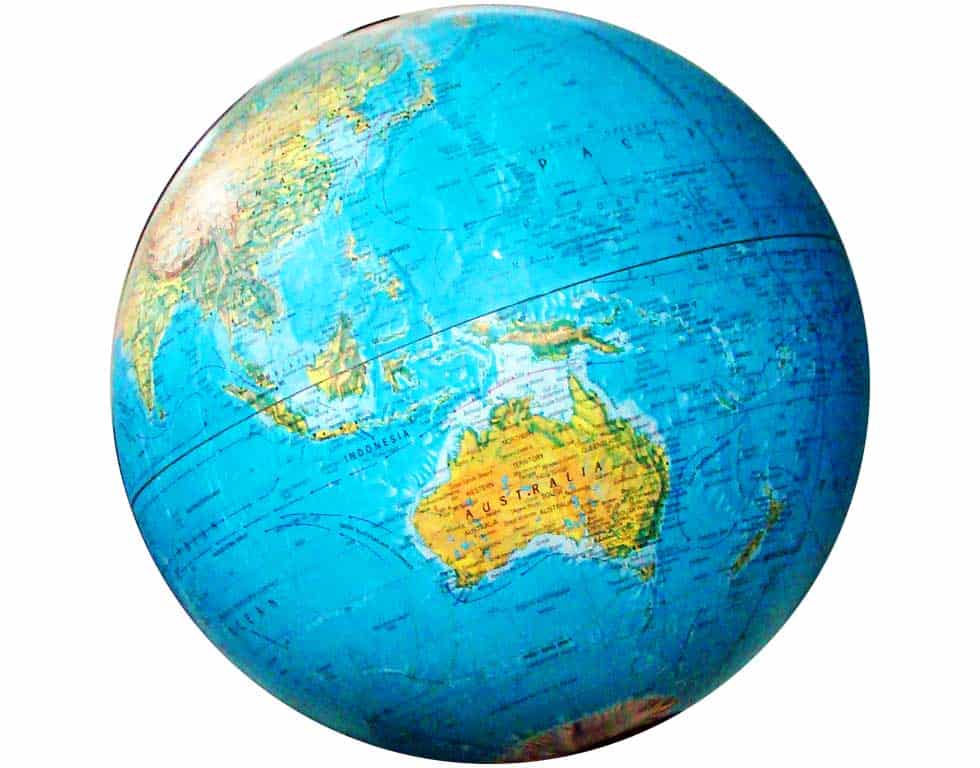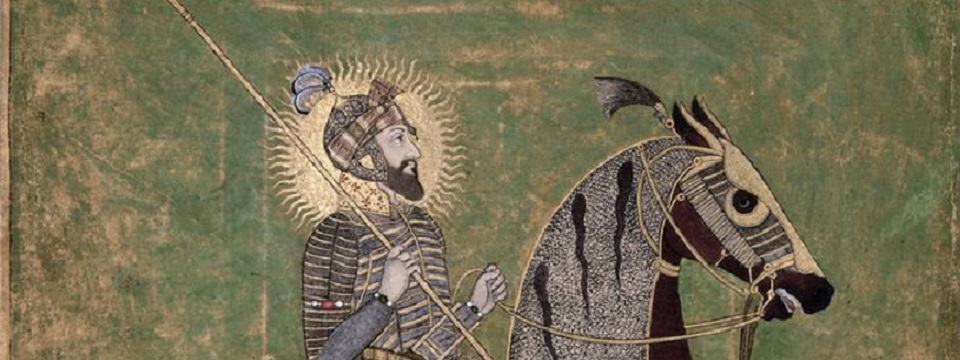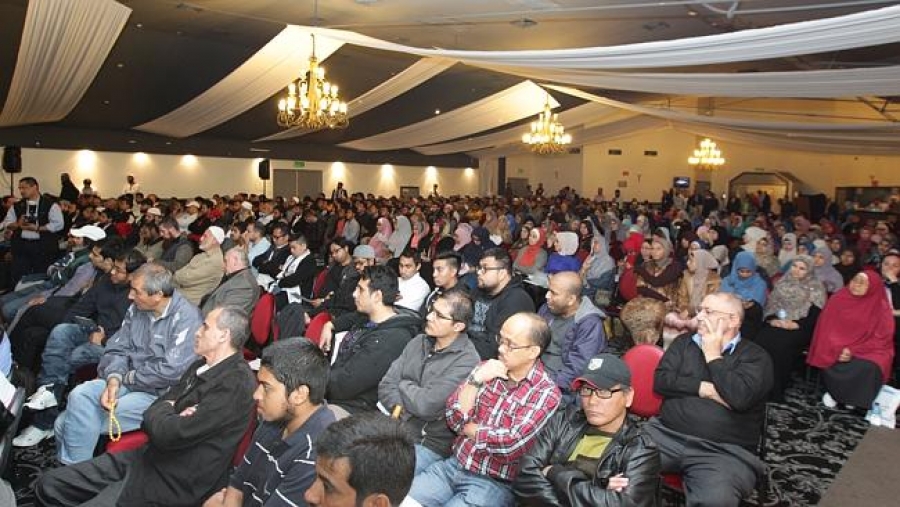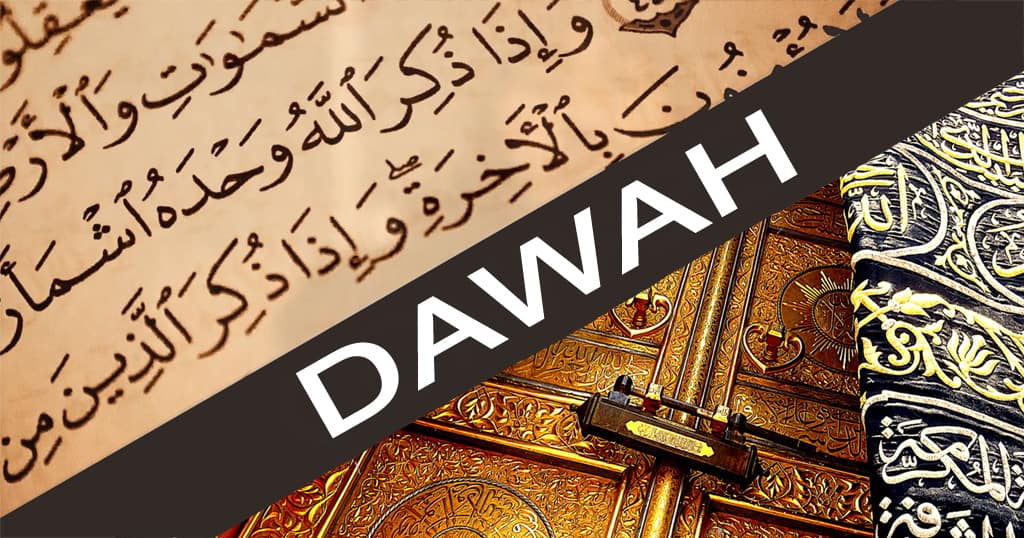Muslims are united by a creed that transcends race, time and geography. It is because of the profoundness of this creed that Muslims, who were born over fourteen hundred years after the Prophet (saw), and live thousands of kilometres from his (saw) birthplace, are still exploring every avenue and expending every effort aimed at ensuring Islam’s unrivalled superiority and application in this world.

Muslims living in Australia are part of the universal brotherhood of Islam. This brotherhood manifests itself not only as an expression of an idea, but also materialises itself practically in all affairs of life.
When Muslims in Australia explore the question of defining our agenda, we must necessarily question the agenda of Islam itself. This is because Muslims in Australia are part of the global Muslim Ummah, and the Islam that exists in one part of the world is the same as that which exists in any other part of the world, just as the duties obliged upon Muslims in one part of the world are the same duties obliged to Muslims in every other part of the world, notwithstanding the ahkam (rulings) that came to address different realities.
Muslims in Australia should reject any notion that seeks to divorce them from the body of Muslims globally. The objectives, priorities and struggles of Islam are as relevant to Muslims in Australia as they are to Muslims globally. There does not exist within Islam a special set of objectives that are exclusive to a section of Muslims only, nor can the underlying objective of Islam be constricted according to time or place. The struggle for Islam that exists in the world today is a struggle that applies to all Muslims globally.
The primary struggle for the Muslims today is the struggle to resume the Islamic way of life. Since the destruction of the Khilafah in 1924 CE, the fundamental tenets of Islam lay dormant due to the absence of an Islamic authority to implement these systems. So the social, political, economic, judicial, educational and military aspects of Islam have been neglected, and even the personal aspects of Islam such as prayer, charity, fasting and hajj have not been without corruption and neglect. The enemies of Islam have achieved an unprecedented degree of control over the affairs of Muslims, and the gravity of the problems confronting the Ummah have only accelerated in degree and number over this period.
The struggle of the Muslims is thus to reverse the decline experienced prior and subsequent to the destruction of the Khilafah. This struggle can be broadly categorised into two main spheres.
The first is the intellectual struggle, which is centred upon reconstructing the clarity of the Islamic creed in the minds of the Muslims, rebuilding the confidence of Islam in the hearts of the Muslims and repelling the poisonous non-Islamic culture that was forced upon the Muslims.
The second is the political struggle, which is focused upon removing the shackles of Western hegemony in the Muslim world, struggling against the enemies of Islam and their agents in the Muslim world, building a critical mass that rejects the illegitimate rulers in the Muslim world, and expending every effort aimed at re-establishing the Islamic political authority.
It is this struggle, a struggle that is primarily playing out in the Muslim world, to which Muslims in Australia must urgently attach themselves. This is because the destiny of the Muslims locally is inextricably linked to the destiny of the Muslims globally. Moreover, our very existence in this country is due to the dire conditions in the Muslim world. At the same time, many of the challenges Muslims face in this country is a direct consequence of the challenges experienced in the Muslim world, challenges that are not only unresolved but, in fact, multiply due to the absence of the application of Islam as a complete way of life.
The question for the Muslims in Australia is thus centred around the manner in which we can partake in the struggle for Islam today. Inevitably, the actions we do undertake must serve either the intellectual or political struggle that is inherent in the wider struggle for Islam. In this respect, there are two angles to explore.
The first is to positively contribute to those efforts aimed at elevating Islam and the condition of the Muslims. From the intellectual side, this involves the preservation of the Islamic identity, the preservation of the Islamic bonds, and the cultivation of a strong and confident Muslim community.
The preservation of the Islamic identity is critical so as to ensure the survival of the Muslims as Muslims in this country. This is obviously crucial for our fate in the next life, but it is also crucial because the Ummah needs its loyal servants wherever they may reside, and a community devoid of its Islam is at best a burden upon the Ummah, but at worst is a hindrance or thorn to be potentially used against the Ummah. So we must ensure we continue to think Islamically and act Islamically. Islam should forever be our sole reference point in life, and it alone should define our priorities, our objectives and our modes of engagement.
The preservation of the Islamic bonds involves the reinforcement of all elements that bind Muslims in Australia with Muslims globally, and vice-versa. This is critical as it will ensure we continue to think as one Ummah, act as one Ummah and react as one Ummah. It ensures Muslims in Australia never lose sight of their global agenda, whilst also laying solid foundations for global action.
The cultivation of a strong and confident community involves the building of strong Islamic personalities, robust Islamic institutions and engaging Islamic activism. Whilst material strength is important to any community, the primary strength of the Muslim is ideological, and so every effort should be aimed towards the cultivation of a community that is replete with strong, educated and cultured individuals, groups and institutions. This is essential so as to provide a basis for real political activism.
From the political perspective, positively contributing to those efforts aimed at elevating Islam and the condition of the Muslims involves the championing of the global Islamic cause and joining those Islamic political parties that are working towards this end.
As Muslims in Australia, it is vital we champion the global cause of Islam for three main reasons.
- The first is because it is our cause and it is our responsibility to ensure the success of this cause.
- The second is to assist those Muslims in other parts of the Muslim world that may not have the opportunity to engage in this work sufficiently due to the oppressive nature of despotic regimes in the Muslim world. We should effectively become the voice, they eyes and the ears of the Ummah.
- The third reason is because many of the conspiracies hatched against the Ummah emanate from the Western world, and so we are uniquely placed to confront these challenges.
But it is of vital importance to appreciate the adoption of such a political agenda is not within the remit of individuals. This work is the domain of groups and parties, specifically political parties working for this cause, because this work is political and the actions required in this struggle are inherently political. So it is the responsibility of every Muslim today to join their hands with the sincere Islamic political parties that are seeking to re-establish the Islamic political authority and to re-assert the Ummah’s political destiny. It is only via these groups that victory is assured.
The second angle from which we can partake in the wider struggle for Islam is to negatively influence the enemies of Islam and the calamities they seek to impose upon the Ummah.
From a global perspective, this involves exposing the plots of Western governments, holding these governments to account and challenging the false narratives employed by these governments in justifying their war on Islam.

Exposing the plots of Western governments is integral so as to protect the Ummah from the dangers of such plots and to initiate corrective actions opposing such plots. As Muslims living in the West, we are often uniquely placed to undertake such an endeavour due to our proximity to key decision makers and the wide availability of strategic information sources.
Muslims in the West are also uniquely positioned to hold Western governments to account due to our direct access to these governments afforded by our existence in these lands. We are also uniquely positioned to alter wider public opinion with the aim of moving the general public to hold their own governments to account.
We are also in a unique position to challenge the false narratives employed by Western governments in justifying their war on Islam. We have the ability and vast opportunity to engage in the public discourse in this country by challenging directly and indirectly the policy makers, think tanks, intellectuals and media that serve the anti-Islamic agenda by exposing the fallacy of their arguments and introducing fresh new perspectives.
On a local level, we must reject the new secular version of Islam that is being constructed by Western governments and their lackeys in the Western and Muslim world. This new ‘moderate’ Islam is a perverted version of Islam that localises the Muslim’s concerns, removes the political aspects of Islam such as the Khilafah and its systems of governance, and seeks to redefine Islam along modern secular and liberal interpretations. The ultimate objective, of which, is the construction of a version of Islam that is incapable of challenging Western hegemony in the Muslim world and the wider world. Muslims must reject this perversion and any individual, group or institution that propagates it.
We must also reject every invitation to compromise our Islam, whether it be through political participation, government funding or by threats and intimidation. The call to compromise is a call to the abandonment of our Islamic agenda, our Islamic priorities and our Islamic means of engagement. It is a call to relinquish the sublimeness of our Islam and the nobleness of its means. Most importantly, Islam is not ours with which to bargain, it is only for Allah (swt) to determine the validity or otherwise of any thought, action or agenda. The judgements of Allah (swt) are preserved in the Quran and Sunnah alone.
We must also reject every attempt at marginalising the Muslim community, exemplified through the use of dehumanising language, the stirring of anti-Islamic sentiment, the adoption of discriminatory government policy, and the creation of a two tiered legal system. The government is aiming to shift public opinion in a direction more hostile to Islam and Muslims, central to which is the placement of Muslims as the centre of ‘concern’. This approach serves to absolve the government and its lackeys of any responsibility in the creation and maintenance of the problems faced by Muslims locally and globally.
Of course, it is the responsibility of Muslims to ensure the lines of debate are redrawn in a manner consistent with the reality, a reality that pits all well-intentioned humans against the destructiveness of Capitalism and its proponents. It is also critical that rather than quivering under the pressure, Muslims must do the precise opposite by standing up and seeking to establish even deeper ties in society.
Notwithstanding the challenges confronting the Muslims globally, it is also undeniable that Muslims in this country face a series of challenges that are unique to this country. But this condition is not without precedent, for Muslims have always responded to the myriad of obligations placed upon them, whether those obligations be related to them as individuals, to them as part of a community or to them as part of the Ummah. What is critical is that we approach the myriad of obligations the way Islam dictates. Generally, all obligations must be fulfilled, and any conflict in effort expended to fulfil these obligations be referred back to Islam for resolution. Many a time it is merely the difference in the manner in which the obligation is to be fulfilled. Some are individual obligations and thus must be fulfilled by individuals as individuals. Others are collective obligations that must be fulfilled by individuals as part of a collective, at times relating to the community in which one resides, or groups and parties that work within the Ummah, or indeed by the Ummah at large.
So whilst Muslims in Australia do indeed face a series of challenges that are unique to Muslims in this country, we should not work with the view that these matters deserve our overriding priority or are of greater importance than other problems plaguing this Ummah.
Indeed we as Muslims must respond to all our obligations, some of which are localised, but most of which are globalised. So we have to carry both burdens, responding to both local and global obligations. The difference, again, however, is the manner in which we respond to such obligations, and it is from this point that every Muslim must consider him/herself as part of one global Ummah, at times we respond to localised duties, at other times, we respond to globalised duties. In all instances, we are still one Ummah, with one agenda and one perspective.
Islam defines for us our priorities, it defines for us our objectives and it defines for us our mode of engagement. Allah (swt) has decreed a noble and esteemed role for the Muslims, for we have been ordained as the best nation brought forth for mankind. Moreover, we have been ordained as witnesses and guardians over mankind. It is thus our divine responsibility to ensure Islam and the Muslims are in an eternal state of superiority, and never can we accept anything less befitting. This is the agenda of the Muslims of Australia and it is the agenda of every Muslim globally.
![]()















